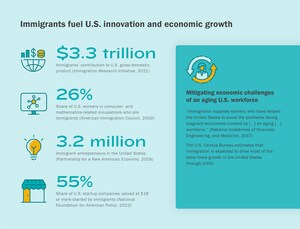BOSTON, April 9, 2024 /PRNewswire/ – Investigators from Analysis Group, a global leader in health economics and outcomes research (HEOR), the University of Oxford, and GSK have coauthored a pair of research papers that show that digital health technologies can continuously assess the symptoms of patients with rheumatoid arthritis (RA) in a remote setting. This technology enables clinicians to develop more sensitive and patient-centric endpoints in RA clinical trials and real-world studies. The papers draw from a 14-day observational study, weaRAble-PRO, that tracked 60 patients 24 hours a day, using a bespoke mobile software application integrated with Apple iPhones and Apple Watches.
"Digital health technologies and machine learning augment patient reported outcomes to remotely characterise rheumatoid arthritis," published in February by Nature's npj Digital Medicine (Creagh, A.P., et al.), is the first research paper to detail how active and passive sensor-based patient data can be combined using machine learning to distinguish RA status from healthy controls, augment traditional patient-reported outcome (PRO) data, and estimate standard in-clinic assessments of RA severity.
Investigators evaluated how smartwatch-based daily physical activity patterns can be remotely estimated using a bespoke deep convolutional neural network, pre-trained using multi-task self-supervised learning, on a large-scale open-source cohort. This enabled investigators to use RA status sensor data from healthy controls to distinguish RA severity levels. These sensor outcomes, both active and passive, were used to augment routinely collected PRO data and could reliably estimate RA severity as measured by standard in-clinic assessments of RA, such as RAPID-3 scores.
"For diseases like RA, where symptoms are generally progressive and fluctuating, frequent patient assessments are important for a more accurate representation of what's happening and to avoid the common recall bias that occurs when clinicians see patients sporadically and ask them to remember their experiences," said study investigator Dr. Mei Sheng Duh, a Managing Principal and the Chief Epidemiologist at Analysis Group.
Further details of the weaRAble-PRO study are described in "Patient‑centric assessment of rheumatoid arthritis using a smartwatch and bespoke mobile app in a clinical setting," published in October 2023 by Nature's Scientific Reports (Hamy, V., et al.). The study generated data from patients with moderate-to-severe RA and a control group without RA. It collected information in two categories: sensor-based biometric feedback (e.g., wrist movements, sit-to-stand transition time, etc.) and patient-reported data using PRO questionnaires programmed into a mobile app. These questionnaires were designed to assess RA-related impact on physical function, including stiffness, pain, and fatigue.
"By having clinicians involved and designing informational data generation methodologies tied to technology that has already been integrated into patients' lives, we're able to get very reliable returns," said study co-investigator Mihran Yenikomshian, a Managing Principal at Analysis Group. "People don't have to remember to put on a new device or carry a separate monitor, which accounts for the 97% study completion rate we saw with weaRAble-PRO, far better than contemporary studies which universally showed declines in participation over time."
In addition to Dr. Duh and Mr. Yenikomshian, investigators included Analysis Group Vice Presidents Christopher Llop, Maral DerSarkissian, and Priyanka Bobbili, Associate Christopher W. Yee, and Data Scientist Jessica Landry; Andrew P. Creagh, Hang Yuan, Gert Mertes, Aiden Doherty, and David A. Clifton of the University of Oxford; Elinor A. Mody of Reliant Medical Group; and Valentin Hamy, Luis Garcia-Gancedo, Ryan Tomlinson, Wen-Hung Chen, Aoife Maxwell, and Rachel Williams of GSK. Funding for this study was provided by GSK.
To learn more about Analysis Group's HEOR capabilities, visit www.analysisgroup.com/healthoutcomes.
Paper citations:
- Creagh, A.P., et al. "Digital health technologies and machine learning augment patient reported outcomes to remotely characterise rheumatoid arthritis." npj Digital Medicine 7.1 (2024): 33.
- Hamy, V., et al. "Patient-centric assessment of rheumatoid arthritis using a smartwatch and bespoke mobile app in a clinical setting." Scientific Reports 13.1 (2023): 18311.
About Analysis Group's HEOR, Epidemiology & Market Access Practice
Founded in 1981, Analysis Group is one of the largest international economics consulting firms, with more than 1,200 professionals across 14 offices. Analysis Group's health care experts apply analytical expertise to health economics and outcomes research (HEOR), clinical research, market access and commercial strategy, and health care policy engagements, as well as drug safety-related engagements in epidemiology. Analysis Group's internal experts, together with our network of affiliated experts from academia, industry, and government, provide our clients with exceptional breadth and depth of expertise and end-to-end consulting services globally.
Contact:
Analysis Group
Eric Seymour, +1 978 273 6049
[email protected]
SOURCE Analysis Group

WANT YOUR COMPANY'S NEWS FEATURED ON PRNEWSWIRE.COM?
Newsrooms &
Influencers
Digital Media
Outlets
Journalists
Opted In






Share this article